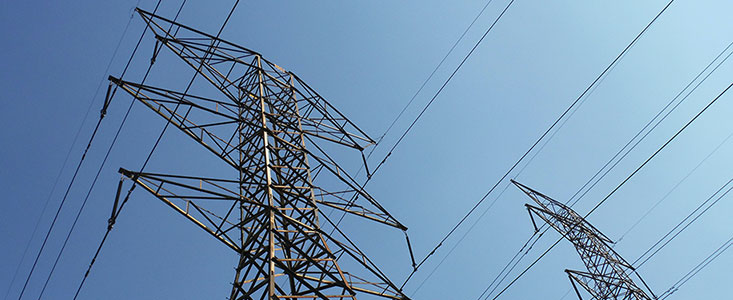Program Details
The Minor in Energy, administered by the College of Engineering, provides students with a foundation in energy science that focuses on topics of fundamental physical principles guiding energy generation, utilization, conservation, engineering applications and the impact of energy within a societal and geological context. Students gain a perspective in energy science that is applicable to many disciplines and highly interdisciplinary. It offers opportunities for students to prepare to work in industry, research, or government, as well as preparation for graduate studies in energy science.
The minor is available as an elective to students who are enrolled in bachelor’s degree programs in the College of Engineering. With the approval of the department and college that administer the student’s degree program, the courses that are used to satisfy the minor may also be used to satisfy the requirements for the bachelor’s degree. At least 9 credits counted towards the requirements for this minor must be unique. Unique credits must not be used to fulfill another university, college, or major requirement in the student’s program.
Students who plan to complete the requirements of the minor should consult the undergraduate advisor in the College of Engineering. Students accepted into the minor must be admitted to the College of Engineering and have completed items 1. and 2. of the requirements stated below. Enrollment for some courses may not be available and may be limited. Application forms are available at Application form for Minor in Energy.
Requirements for the Minor in Energy
Complete a minimum of 21 credits from the following.
1. One of the following course (3 credits):
- BE 230 Engineering Analysis of Biological Systems 3 cr
- CHE 201 Material and Energy Balances 3 cr
- MSE 250 Materials Science and Engineering 3 cr
2. One of the following courses (3 or 4 credits):
- BE 351 Thermodynamics for Biological Engineering 3 cr
- CHE 321 Thermodynamics for Chemical Engineering 4 cr
- ECE 320 Energy Conversion and Power Electronics 3 cr
- ME 201 Thermodynamics 3 cr
- MSE 310 Phase Equilibria in Materials 3 cr
3. One of the following courses (3 credits):
- BE 456 Electric Power and Control 3 cr
- ECE 302 Electronic Circuits 3 cr
- ECE 345 Electronic Instrumentation and Systems 3 cr
4. One of the following courses (3 credits):
- CE 473 Smart and Sustainable Building Design and Operations 3 cr
- ENE 472 Life Cycle Assessment of Energy Technologies 3 cr
- ME 417 Design of Alternative Energy Systems 3 cr
- MSE 410 Materials Foundations for Energy Applications 3 cr
5. One of the following courses (3 credits):
- AESC 310 Sustainable Systems Analysis 3 cr
- CE 371 Sustainable Civil and Environmental Engineering Systems 3 cr
- CSUS 200 Introduction to Sustainability 3 cr
- EEM 255 Ecological Economics 3 cr
6. Two of the following courses (6 to 8 credits):
- AFRE 829 Economics of Environmental Resources 3 cr
- BE 469 Sustainable Bioenergy Systems 3 cr
- CE 473 Smart and Sustainable Building Design and Operations 3 cr
- CEM 485 Modern Nuclear Chemistry 3 cr
- CHE 468 Biomass Conversion Engineering 3 cr
- CSS 467 BioEnergy Feedstock Production 3 cr
- CSUS 200 Introduction Sustainability 3 cr
- CSUS 259 Sustainable Energy and Society 3 cr
- CSUS 491 Special Topics in Community Sustainability 1 to 3 cr
- ECE 423 Power System Analysis 3 cr
- ECE 425 Solid State Power Conversion 3 cr
- ECE 476 Electro-Optics 4 cr
- ECE 821 Advanced Power Electronics and Applications 3 cr
- EEM 320 Environmental Economics 3 cr
- ENE 472 Life Cycle Assessment of Energy Technologies 3 cr
- ENE 489 Air Pollution: Science and Engineering 3 cr
- FOR 414 Renewable Wood Products 3 cr
- GLG 201 The Dynamic Earth 4 cr
- GLG 301 Geology of the Great Lakes 3 cr
- GLG 471 Applied Geophysics 4 cr
- MC 450 International Environmental Law and Policy 3 cr
- ME 417 Design of Alternative Energy Systems 3 cr
- ME 422 Introduction to Combustion 3 cr
- ME 442 Turbomachinery 3 cr
- ME 444 Automotive Engines 3 cr
- MSE 410 Materials Foundations for Energy Applications 3 cr
- MSE 460 Electronic Structure and Bonding in Materials and Devices 3 cr
- TSM 130 Energy Efficiency and Conservation in Agricultural Systems 3 cr
A course used to fulfill requirement 4. or 5. above may not be used to fulfill requirement 6. Not all courses will be available to all majors and students must meet all course prerequisites and restrictions.


